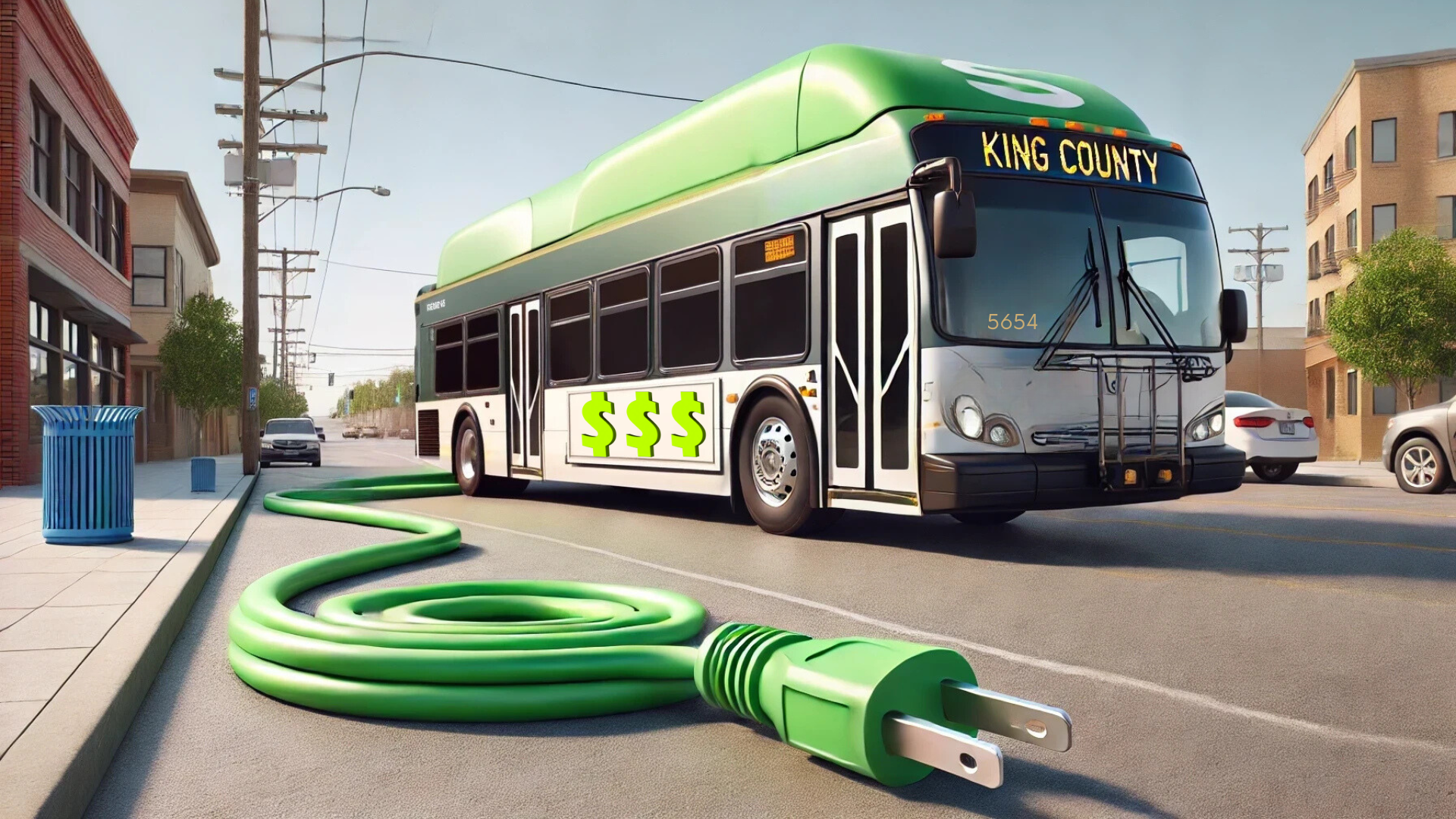This month the King County Council will be considering a $2.1 billion budget proposal for Metro Transit. That includes hundreds of millions of dollars for conversion of the Metro fleet to battery-electric buses. The apparent popularity for electrification may make that an easy vote, but before the County Council approves the budget they ought to take a hard look at the high cost and ask whether the electrification program will address the very serious challenges Metro is facing.
Those challenges include steadily rising costs and low ridership. In 2013 the operating cost for one hour of Metro bus service was $159.43, or about $200 adjusted for inflation. By 2023 the cost had increased to $255 per hour. While costs were rising, ridership was falling. In 2013 Metro buses had 35.7 passenger boardings per service hour, by 2023 ridership had decreased by more than a third to 22.5 boardings per hour. These trends raise serious questions about the cost-effectiveness of Metro’s long-range plan.
Metro’s goal of achieving a zero-emissions fleet by 2035 may be commendable from an environmental perspective, but it won’t increase ridership and it is unlikely to lower operating costs. It has been convenient to assume electric buses will reduce costs by eliminating expenditures on fuel, but diesel fuel constitutes only about five percent of Metro’s $650+ million per year operating budget, so switching to electric power isn’t going to dramatically reduce costs. This can be seen in the cost per hour and cost per mile of Metro’s electric trolley buses, which are comparable to costs for their diesel fleet. And keep in mind, electricity isn’t free, nor is it getting cheaper. In fact, City Light has announced that rates are expected to increase by at least 30% by the time Metro’s transition to electric buses is complete.
Electric motors do have the advantage of fewer moving parts, and it has been hoped this will result in higher reliability and lower maintenance costs. Experience thus far paints a rather mixed picture. A 2024 report by the King County Auditor revealed that as of March, “…roughly fifty percent of the New Flyer battery-electric buses were out of service on any given day.” When the battery and charging technology matures a higher level of fleet readiness should be possible, but the disappointing results from the first few years of operation call into question whether Metro’s very aggressive timeline for achieving zero-emissions is prudent. The County Executive may like the idea of being the first large transit agency to claim zero-emissions, but letting others work out the bugs is likely to save time and money in the long run. As further evidence of that, the first batch of battery-electric buses Metro purchased were built by Proterra, but that firm has since gone bankrupt leaving Metro with an odd-ball fleet to maintain.
The Auditor's report also noted there were only two manufacturers of battery electric buses still in business in the U.S, which limits industry capacity and results in high prices. Standard size battery-electric buses are likely to cost over $850,000 per unit. That is at least a third more expensive than comparable diesel buses. The Auditor’s report also points out that battery-electric buses have a lower passenger carrying capacity than Metro’s existing diesel buses, which means a reduction in peak capacity despite the much higher cost.
Another finding in the Auditor’s report is that the limited range of battery-electric buses and the extended time required for charging may make it difficult to meet Metro’s operational requirements. That translates into less service, or higher facility costs to build dozens of layover charging stations that will be needed to provide 2023 levels of service on Metro routes. In addition to en-route charging stations, new operating bases are planned. The new Tukwila base for electric buses has a price tag of $380 million. Clearly, zero-emissions bragging rights will come at a very high price for King County taxpayers.
For a transit agency that is already struggling to restore service cut during the pandemic the huge commitment of resources to electrification will make it harder to achieve Metro’s ridership and equity goals. The County Council would be well advised to review the risks identified in the King County Auditor’s Report and revisit Metro’s long-range plan before signing off on hundreds of millions of dollars for electrification that won’t solve the agency’s problems.



